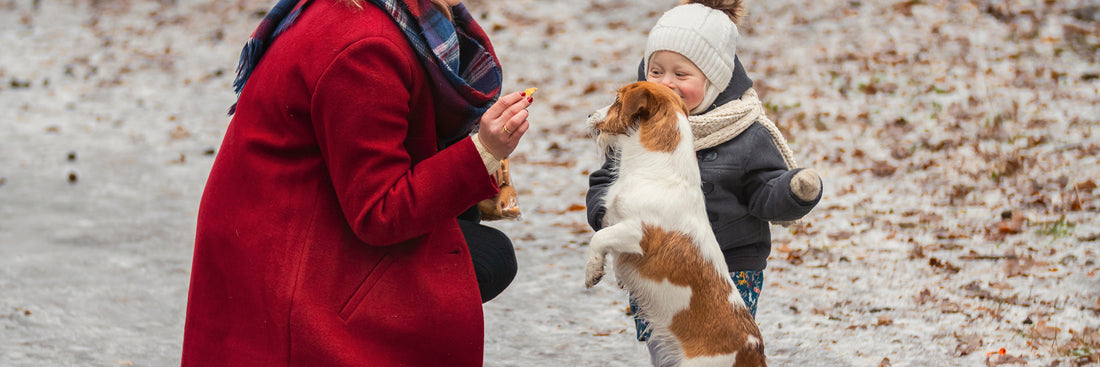As temperatures drop and winter approaches, our daily routine tends to change. We crave hearty meals to keep warm and prefer spending more time indoors vegging out. But when it comes to cats and dogs, how much does cold weather affect their appetite?
To answer this question, we need to consider each pet individually.
How colder weather affects your dog
First, let’s talk about your pet’s environment. Just as animals in the wild require more calories to see them through a rough winter, a dog that spends much of his time outside or in an outdoor kennel will need more food to keep warm. Those additional calories that the body craves during colder months help build fat in our body, which keeps us well insulated against the cold. So in a way, the rule here is very simple: the colder the temperature that your pet is exposed to, the more calories they’ll need.
In contrast, a dog living indoors with commodities like central heating won’t need extra food to sustain them through the winter. Unless – their physical activity decreases, in which case they may even need to eat a little less. This takes us to our next point: exercise!
If keeping up with walks during winter becomes a difficult challenge, you’re not alone. Going outside when it’s dark and freezing cold simply isn’t very appealing. However, physical activity is extremely beneficial to us and our pets, so it’s important that we look at ways to keep active and prevent weight gain during the colder months (more on this below).
And what about cold weather and cats?
In a study by the University of Liverpool, researchers discovered that cats have a natural tendency to eat more during the winter. For this study, they spent four years monitoring the eating patterns of 38 cats, and found out they have approximately 15% less food during summer.
However, cats in the study were allowed to play and exercise outside all year round, which suggests that, like dogs, outdoor cats could require more food in winter while indoor cats that aren’t as exposed to seasonal changes won’t. Here’s another example: an outdoor cat who prefers to stay indoors curled up by the fire during the autumn and winter months will need the same amount of food (if not less) than during spring and summer.
As one of the study authors concluded, “Cats, like many humans, are more inclined to comfort eat when it’s cold outside but, in their case, this is likely to be due to the extra energy they need to keep warm when out and about.”
Conclusion
How much you give your pet to eat in winter will depend entirely on your cat or dog. Let your pet’s body condition, level of fitness and changes to their routine guide you.
So, if there’s an increase in their physical activity or your pet spends more time outside, it’s possible you may need to feed more. For indoor cats, the change in daylight length and the temperature outside may trigger the instinct to eat more, but today’s modern homes make this less and less likely. As for pets that exercise less during the cold months, their food intake should also decrease, whether this means smaller portions or fewer treats.
Winter care tips
- Avoid leaving food constantly available to your cat or dog. This may seem like the right thing to do, but it’s healthier to feed controlled portions 2-3 times a day. As dog owners well know, our canine friends can become pretty unstoppable where food is involved!
- When daily walks become a struggle, we’d suggest finding new ways of keeping active. This can be anything from taking shorter, more frequent walks, to giving your dog new toys more frequently or increasing play sessions inside the home. Meeting friends with dogs for walks can help too.
- If the temperatures in your area drop drastically during the night, we’d recommend keeping outdoor cats inside to prevent the danger of freezing.
- Your pet’s coat offers protection against the cold. Keep it in top condition with a good grooming routine. Regular brushing increases blood circulation and removes excess hair (this is especially useful during the moulting period).
- We may not always notice, but winter air can be very dry. To ensure your pet is well hydrated, always have water available for them and encourage them to drink regularly.






Recent post